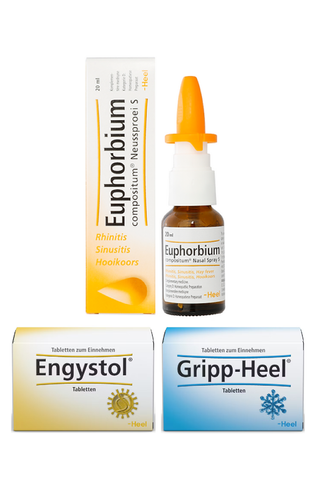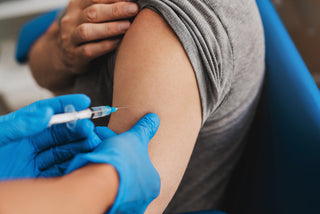

Please note: Product illustrations may slightly vary. If you have any questions about a product or service, we are happy to help.
Please note: Product illustrations may slightly vary. If you have any questions about a product or service, we are happy to help.
-
The anti-viral activity of Engystol and Gripp-Heel have been studied in-vitro and the findings were that the two ultra-low-dose combination medications, Engystol® and Gripp-Heel®, have documented efficacy for the treatment of the respiratory infections and the conclusions were that Engystol® and Gripp-Heel® inhibited the replication of a variety of respiratory viruses. Additionally, we showed that pre-incubation affects the magnitude of the inhibitory effect differently for the various tested viruses. Both medications stimulate type 1 IFN release in different cell systems which suggests that their antiviral activity may be mediated possibly via modulation of the antiviral type 1 IFN host response.
Euphorbium Compositum nasal spray was also studied, and the result was that the analysis of virus production after treatment of the infected cells with the remedy showed an antiviral activity of Euphorbium compositum SN against RSV and HSV-1. In addition, an antiviral effect against influenza A virus and HRV, though minimal, was, also noted. Analyses of the plant-derived components of Euphorbium compositum SN, e.g. Euphorbium resinifera, Pulsatilla pratensis and Luffa operculata for their antiviral activity revealed a clear activity of Euphorbium resinifera and Pulsatilla pratensis against RSV.
The anti-viral activity of Engystol and Gripp-Heel have been studied in-vitro and the findings were that the two ultra-low-dose combination medications, Engystol® and Gripp-Heel®, have documented efficacy for the treatment of the respiratory infections and the conclusions were that Engystol® and Gripp-Heel® inhibited the replication of a variety of respiratory viruses. Additionally, we showed that pre-incubation affects the magnitude of the inhibitory effect differently for the various tested viruses. Both medications stimulate type 1 IFN release in different cell systems which suggests that their antiviral activity may be mediated possibly via modulation of the antiviral type 1 IFN host response.
Euphorbium Compositum nasal spray was also studied, and the result was that the analysis of virus production after treatment of the infected cells with the remedy showed an antiviral activity of Euphorbium compositum SN against RSV and HSV-1. In addition, an antiviral effect against influenza A virus and HRV, though minimal, was, also noted. Analyses of the plant-derived components of Euphorbium compositum SN, e.g. Euphorbium resinifera, Pulsatilla pratensis and Luffa operculata for their antiviral activity revealed a clear activity of Euphorbium resinifera and Pulsatilla pratensis against RSV.




